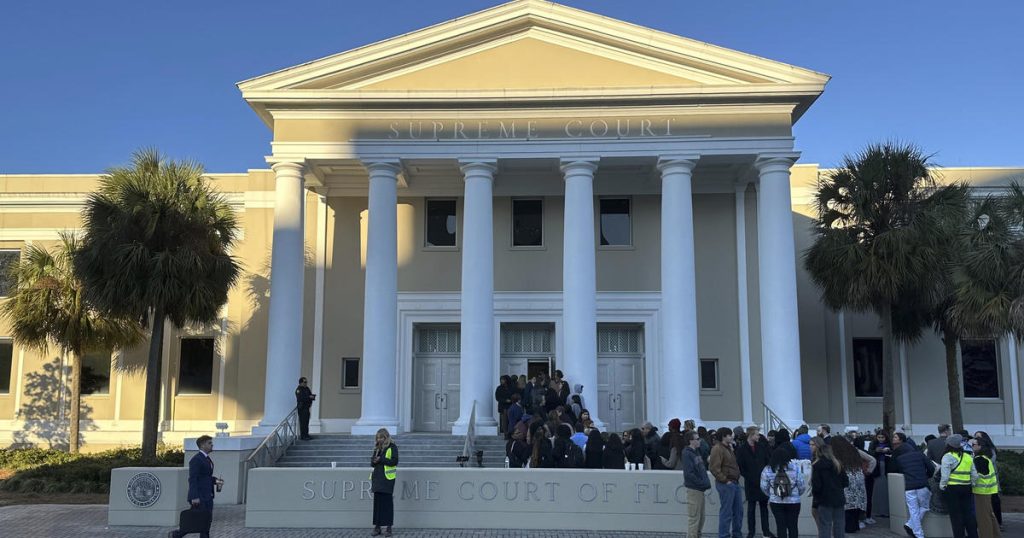The Florida Supreme Court ruled in favor of a state constitutional amendment that would limit government intervention in abortion procedures across Florida, allowing it to appear on ballots in November. The court also upheld Florida’s 15-week abortion ban in two out-of-calendar opinions. The pro-abortion rights ballot initiative was introduced by Floridians Protecting Freedoms, a campaign that advocates for personal medical decision-making, including abortion, free from government interference. The amendment, known as Amendment 4, would permit abortions before viability but would still require parental notification if a minor seeks an abortion.
Amendment 4 states that no law shall prohibit, penalize, delay, or restrict abortion before viability or when necessary to protect the patient’s health, as determined by the healthcare provider. However, it does not change the Legislature’s authority to require parental notification for minors seeking an abortion. The measure will require 60% support to pass on the ballot this fall. Florida Attorney General Ashley Moody opposed the amendment, citing concerns with the term “viability.” Moody argued that there is no clear clinical definition of viability but proponents of the amendment claimed that voters understand the term in the context of abortion.
The ruling by the Florida Supreme Court marks a significant development in the debate over abortion rights in the state. The decision to allow Amendment 4 to move forward for a vote in November has the potential to impact the future of abortion legislation in Florida. Proponents of the amendment believe that Floridians should have the freedom to make personal medical decisions, including abortion, without government intervention. The requirement for 60% support to pass the ballot measure adds a level of challenge to the campaign for abortion rights in the state.
The legal battle over abortion rights in Florida continues as both sides present their arguments and positions on the issue. While the court ruled in favor of allowing the constitutional amendment to proceed, there are still debates surrounding the language and requirements of the proposed measure. The involvement of the Florida Attorney General and other stakeholders reflects the contentious nature of the debate over reproductive rights in the state. The outcome of the upcoming ballot measure will shape the future of abortion laws and regulations in Florida.
As the debate over abortion rights intensifies in Florida, public awareness and engagement on the issue are likely to increase. The decision to include Amendment 4 on the ballot will offer voters the opportunity to express their stance on abortion legislation in the state. The conflicting perspectives on the concept of viability and parental notification highlight the complexities of the abortion debate and the diverse viewpoints within the state. The upcoming election will serve as a crucial moment for Floridians to voice their opinions on this contentious issue and potentially influence future abortion policies in Florida.


